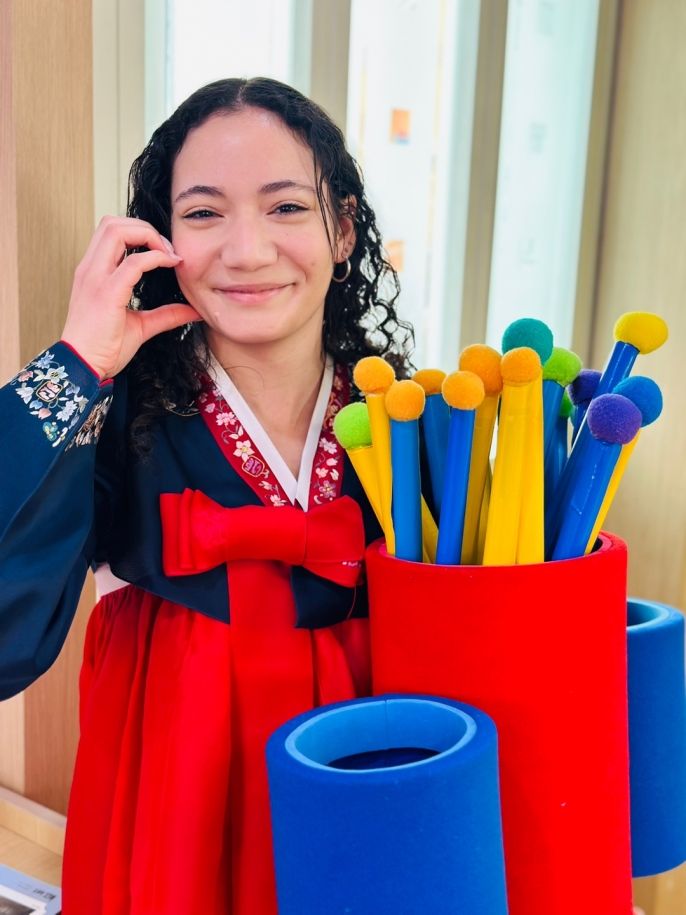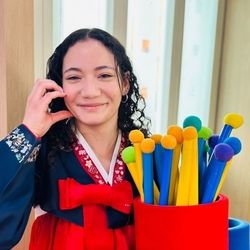Challenges of Living and Teaching Abroad in South Korea
Who thought teaching abroad was a simple and care-free decision - As if! Now, let me introduce you to some of the challenges that you can expect to encounter while on your teaching abroad journey. Don't worry or stress too much! I have been teaching abroad in South Korea for a year and a half now so it couldn't possibly be as bad as you may be thinking :)
First, let's talk about the very reason you chose to move countries and its challenges, aka teaching English abroad. Teaching abroad may seem overwhelming and scary at first, especially if you come with little to no experience. I remember feeling very nervous and stressed out my first week of work because I had very little experience in the teaching field. In this line of work (I will specifically be speaking from my own experience working at a hagwon or private academy in South Korea which is different from public or international schools), some things move at a quick pace. I remember arriving in South Korea on August 31st at 3am and starting work the same day at 1pm.
TRAINING:
The jet lag made it quite easy to stay awake, but as the end of the work day came upon us I was dead on my feet. Adjusting to the time difference and labor demand your first week can be difficult. On top of my messed up sleep schedule I was only given 3 days of training (1 day with the head Korean teacher where I simply shadowed her for all of her lessons and 2 days with the native teacher that I was replacing). The training process was quick and rushed for me personally, which can happen to a lot of native teachers. Most other teachers I have met have had a similar training experience where by their third or fourth day of being in the country they were already left alone in the classroom with the students. This is typically because the turn over rate for foreign teachers is high. Most teachers change schools after 1 year; With the visa process taking a while, the match up of dates for your arrival into the country, and the other teacher's departure inherent from this process contributes to the overall turnover.
ADJUSTMENTS:
Now, do not stress about this too much. In my personal experience the Korean teachers have been fairly patient and helpful when it comes to constructive criticism and just offering advice or tips. Another reason not to stress is because our job as English teachers is to simply teach english... Aaaaannd since it is our first language (as people going through CIEE) then it takes little to no thinking time to prep or plan. Maybe it takes a quick grammar google search to refresh our memories for the elementary and older students, but usually if you teach kindergarten then your real struggle is keeping them entertained. Also, most schools typically give you their lesson plans or they give you all the materials to prep a lesson easily. In my textbooks at school (for kindergarten and elementary) there are full lesson plans written out for each page with suggestions on how to introduce the topic, walk through the lesson, a relevant game and a classroom walkout activity to review. Once I got the hang of things, my only struggle became stretching out the lessons over a couple weeks or a month to follow the academy’s schedule.
CONNECTIONS:
Aside from the adjustments you have to make to having a new job and learning all about it, connecting with your coworkers can also be tough. I have been quite blessed to have gotten along with most of my coworkers that have come through while I have been at my school. However, there is always a possibility that you may not get along with some, or you may go in expecting to make your first friends with your coworkers and find out you can only be work friends. You may also feel alienated if your school doesn't have many or any other foreign teacher. I have heard of some schools only having one foreign teacher who teaches all the classes at least once a day or a few times a week. Of course, you will have Korean teachers, but sometimes the language barrier can be a huge obstacle. I will say even with a language barrier, my Korean co-teachers try their best to make me feel comfortable while at school, but this does not translate to the world outside of work. Buuuuutt! Do not stress. I was able to find and make good friends by going to language/ cultural exchanges, taking classes (like dance, boxing, art, etc.), finding local foreign restaurants and bars. There is also always the rule of if you make one friend, you are bound to make others through their connections as well.
PACKING:
While we are on the topic of leisure activities and adjustments outside of the classroom, let's talk about the challenges of moving and living abroad… The first challenge you will face is what to pack… I know I spent days trying to pack a year's worth into my two suitcases and backpack… But thank goodness I was able to narrow it all down. My advice when packing to come to South Korea is to definitely pack for all four seasons. Even if you work at a school in the south, like Busan, you may not get snow, but you are not safe from the cold temperatures. You can thank the Ocean for that one, because the wind is so intense along the coast that you will catch yourself questioning your weather app once you step outside. Another tip, I would ask your school in your interview what the dress code is for everyday. At my school, we can wear casual outfits everyday and we only have to dress in business casual if the parents are coming to the school, there is an event where pictures will be taken and posted for parents to see, or special occasions like entrance and closing ceremonies. I would also recommend buying suitcase dividers, or packing bags to help minimize how much space you use in your suitcase. This also helps allow you more wiggle room when it comes to buying things in the country and when it comes time to bring it all home.
NAVIGATION:
Another challenge you may face once you touch down in the country is how to get around… I definitely recommend downloading four important apps before coming to Korea. Those are Naver Maps, which is an English friendly navigation app, its korean friendly counterpart Kakaomaps, Kakao Taxi for easy transportation since you may not have a T-money card. However, you can easily purchase one at any convenience store and charge it up with cash in order to use the buses and subway. The last app I would suggest downloading before arrival would be papago which is a translation app that allows you to use text, speech, images, etc.
CULTURAL DIFFERENCES:
Another challenge you may face that is unavoidable when moving to a different country are cultural differences. When I first came to South Korea as an exchange student, I recall being very nervous about giving American people a bad rep or name for not being knowledgeable about cultural norms in Korea. For this reason, I did my own research by asking my Korean friends, googling my questions, watching youtube videos, reading blogs, etc. So, you’re already on the right track by being here reading this blog. I will tell you some of the cultural differences that you should know before moving to South Korea. First, the yellow or gray covered seats on buses are for disabled, elderly, children, or pregnant women. You can sit there if no one is sitting there, but as soon as one of the aforementioned boards the bus, you should move seats or stand depending on the bus's capacity. The same is done on the subway with pink seats benign reserved for pregnant women, yellow and gray seats at the ends of each cart for elderly people, and sometimes even whole rows for the mentioned groups above. While also on public transportation, it is considered rude to answer phone calls, play music aloud, or talk loudly as it is disturbing to other passengers.
As you can tell, from the rules above, South Korea has an age hierarchy where they respect those older than them. This is in all areas of life, so you will see it in your work environment and may be expected to abide by some of the rules such as, standing and greeting your superiors, walking to the person who calls your name instead of calling back out, waiting to serve yourself lunch (in general just letting the older people do things first), etc.
These challenges listed out on a screen for you now may seem overwhelming, but if you prepare yourself ahead of time and open yourself up to the changes then adjusting to life in Korea will become that much easier :) I know that I will definitely come up with more challenges in my sleep so stick around for a potential part 2 and feel free to reach out to the CIEE team or myself if you have any questions!
Insta: @kyleah_parr
TIKTOK: @k.y.slife
Related Posts

CIEE CHINGU – A Partner Program for Teachers in Korea
Chingu ( 친구 ) is the Korean word for friend . CIEE Chingu is a partner program included in CIEE’s Teach in South Korea programs! Our goal is to connect... keep reading

TWICE with CIEE: Kayleigh in Korea (PART 1)
Kayleigh is a CIEE alum who participated in CIEE's Teach in South Korea program AND CIEE’s Teach in Spain Volunteer program! CLICK HERE to read her experience in Spain. WHY... keep reading

Learn Korean with K-Media: Advice from Valerie!
Hello! My name is Valerie, and I will be teaching in South Korea through the EPIK program starting this spring. With my interests being in Korean cultural studies, teaching in... keep reading



